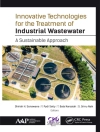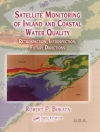This book asks how we are to understand the relationship between capitalism and the environment, capitalism and food, and capitalism and social resistance. These questions come together to form a study of food regimes and the means by which capitalism organises both the environment and people to provision its distinctive system of ever-expanding consumption with food.
Political Ecology, Food Regimes, and Food Sovereignty explores whether there are environmental limits to capitalism and its economic growth by addressing the ongoing and inter-linked crises of food, fossil fuels, and finance. It also considers its political limits, as the globally burgeoning ‘precariat’, peasants and indigenous people resist the further commodification of their livelihoods.
This book draws from the field of Political Ecology to approach new ways of analysing capitalism, the environment and resistance, and also to propose new solutions to the current agro-ecological-economiccrisis.
Spis treści
1. Introduction .- Section 1: Political Ecology, Food Regimes, and Food Sovereignty .- 2. Political Ecology and Social Systems: An Integrated, but Differentiated, Theory of Socio-Natural Dynamics .- 3. Political Ecology, Capitalism, and Food Regimes .- 4.The ‘First’ or British ‘Liberal’ Food Regime 1840-1870; The ‘Second’ or ‘Imperial’ Food Regime 1870-1930 .- 5. The Rise and Demise of the ‘Third’ or ‘Political Productivist’ Food Regime 1930-1980 .- Section 2: Crisis and Resistance .- 7. The Neoliberal Food Regime in Crisis? .- 8. Crisis and Resistance: Reform or Revolution? .- Section 3: Country Case Studies .- 9. Prelude to the Country Case Studies: The Agrarian Question and Food Sovereignty Movements .- 10. Bolivia .- 11. Ecuador .- 12. Nepal .- 13. China .- Section 4: Resilience as Counter-Hegemony .- 14. ‘Understanding the World in Order to Change It’: What Might Food Sovereignty Look Like? Or a Normative Political Ecology as Livelihood Sovereignty.
O autorze
Mark Tilzey is Senior Research Fellow in the Governance of Food Systems for Resilience at Coventry University, UK. His research interests include political ecology, agroecology, agri-environmental politics and governance, and the international political economy of agri-food systems.












